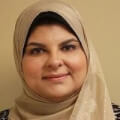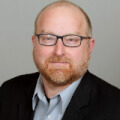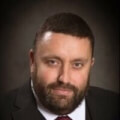Feb
28
2023
On demand
Understanding donor characteristics to improve allogeneic cell therapy outcomes for all
Tuesday 08:00 PST / 11:00 EST / 16:00 GMT / 17:00 CET

Join us for an in-depth discussion of efficiencies in donor selection to reduce uncertainties about HLA matching and improve patient outcomes. This webinar will also focus on equity within the cell and gene therapy space and how reported characteristics like race and ethnicity can impact data quality.
Attend this webinar to discover more about:
- How proven transplant infrastructure can assist in the delivery of cell and gene therapies
- The complexity of HLA in cell selection (including reported race, ethnicity, and the impact on data quality)
- The use of machine learning in informing cell/source selection
You might also like

Leveraging fluid dynamics characterization to accelerate cell therapy product development
Hamza Patel, Tom Heathman
10 June
in 18
Days

Large-scale manufacturing of allogeneic stem cell-derived NK cell therapies
Monica Raimo, Jan Spanholtz
6 August 2024
Watch

Enabling allogeneic cell therapy development: scaling up generation of PSC-derived NK cells
Mark Kennedy, Marcus Bunn
15 October 2024
Watch

Navigating the transition from research to clinical-scale cell therapy manufacture
S Feldman, J Fruehauf, M Ann Santos
22 May
Watch

Understanding and leveraging cord blood bank capabilities and practices in cell therapy development
J Aho, A Conerty, S Shields et al.
15 August 2024
Watch



